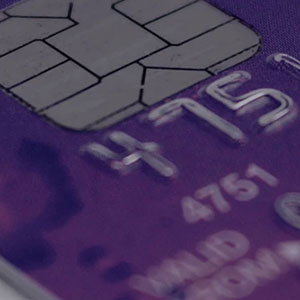
It largely depends on whether your mortgage payments are current or past due and how much equity you own in your home. Equity is the value of your home less the debt secured by the home – such as a mortgage. If your home is worth $100,000 and your mortgage balance is $80,000, the equity in your home is $20,000 ($100,000 value less $80,000 secured debt). When you file bankruptcy, you are entitled to some exemptions. For a Georgia resident, one of these exemptions is the homestead exemption which allows someone to exempt $21,500 (or $43,000 for a couple filing jointly) equity in a home where you or a dependent reside. In the example above, the home owner with $20,000 in equity could keep a home in bankruptcy assuming the…Read More

NOTE: I am not an immigration lawyer When it comes to bankruptcy, immigrations have some additional concerns. Will I be deported if I file a bankruptcy petition? Will a bankruptcy affect my application for naturalization or permanent legal residence? Fortunately, there is good news. Filing a bankruptcy petition is not considered to be evidence of bad moral character. However, if you commit a crime related to the bankruptcy, your immigration status may be negatively affected. A bankruptcy crime includes intentionally hiding assets from the bankruptcy trustee (or other court agent), false swearing or perjury related to your bankruptcy case or committing a scheme to defraud by filing a fraudulent bankruptcy petition or other document or making a false or fraudulent promise, representation or claim relating to bankruptcy. Committing a crime…Read More

An initial consultation is a first meeting between a lawyer and a potential client. It has multiple purposes. First, the lawyer and client are both attempting to see if they will be able to work together. Second, the lawyer obtains some facts about the case to determine if there is a potential conflict of interest and to see if it is the type of case the lawyer might accept. Third, it is an opportunity for the client to learn a little of the law that relates to their case and to ask questions. After introducing herself, the lawyer will give you an opportunity to tell her about your legal problem. It may be difficult to talk about your legal problem, but it is important for the lawyer to know the…Read More

(This is the second part of a two-part series on the federal Fair Debt Collection Practices Act.) Misleading Acts Misleading acts are prohibited. A debt collector may not Falsely represent or imply that he or she is vouched for, bonded by, or affiliated with the United States or any state, including the use of any badge, uniform, or similar identification Falsely represent the character, amount, or legal status of the debt, or of any services rendered, or compensation he or she may receive for collecting the debt Falsely represent or imply that he or she is an attorney or that communications are from an attorney Threaten to take any action that is not legal or intended Falsely represent or imply that nonpayment of any debt will result in the arrest…Read More

Updated: Apr 17, 2018 The federal government found there was evidence of abusive and deceptive practices by debt collectors. Legislators believed this contributed to the number of bankruptcies, marital instability, loss of jobs and invasions of personal privacy. To remedy these problems, it passed the Fair Debt Collection Practices Act. To understand the Act, it is important to understand how the Act defines “debt” and “debt collector." “Debt” is defined as an obligation or alleged obligation to pay money related to a personal, family or household transaction. This would include, for example, debts owned on personal credit cards but not credit cards owed by a business. Likewise, a car loan for a car primarily used by a company would not be covered but a car loan for your personal car…Read More

Credit repair is the correction of incorrect items on your credit report. Negative items on your credit report can cause you to be denied a loan, apartment or job. Even if you get a loan with poor credit, you will likely pay a higher interest rate. Over the life of a major loan such as a home or car loan, the higher interest rate can cost you hundreds or even thousands of dollars. It is important to correct information on your reports that is incorrect if it is negative to avoid denials and high interest rates. There are a lot of credit repair companies that will perform these services for you. Some are legitimate. Some are not. Both the Federal Trade Commission and the Georgia Department of Law warn consumers…Read More

Yes, you can get a free copy of your credit report. Credit reporting agencies are required by law to provide you with a copy of your own report once each year free of charge. You can get your report from Experian, Equifax and Transunion at Annual Credit Report. These reports do not include your credit score (they charge extra for that). You can see your credit reports from TransUnion and Equifax (but not your Experian) free of charge at CreditKarma, too. CreditKarma lets you see your reports more often than once per year and shows you credit scores for Transunion and Equifax. Whatever method you choose, you should view your credit reports at least once each year to make sure the information on the report is correct. If it is…Read More

Updated: Mar 12, 2018 Mary and Bill recently divorced. Their divorce decree stated that Bill would pay the balances on their three joint credit card accounts. Months later, after Bill neglected to pay off these accounts, all three creditors contacted Mary for payment. She referred them to the divorce decree, insisting that she was not responsible for the accounts. The creditors correctly stated that they were not parties to the decree and that Mary was still legally responsible for paying off the couple's joint accounts. Mary later found out that the late payments appeared on her credit report. If you've recently been through a divorce - or are contemplating one - you may want to look closely at issues involving credit. Understanding the different kinds of credit accounts opened during…Read More